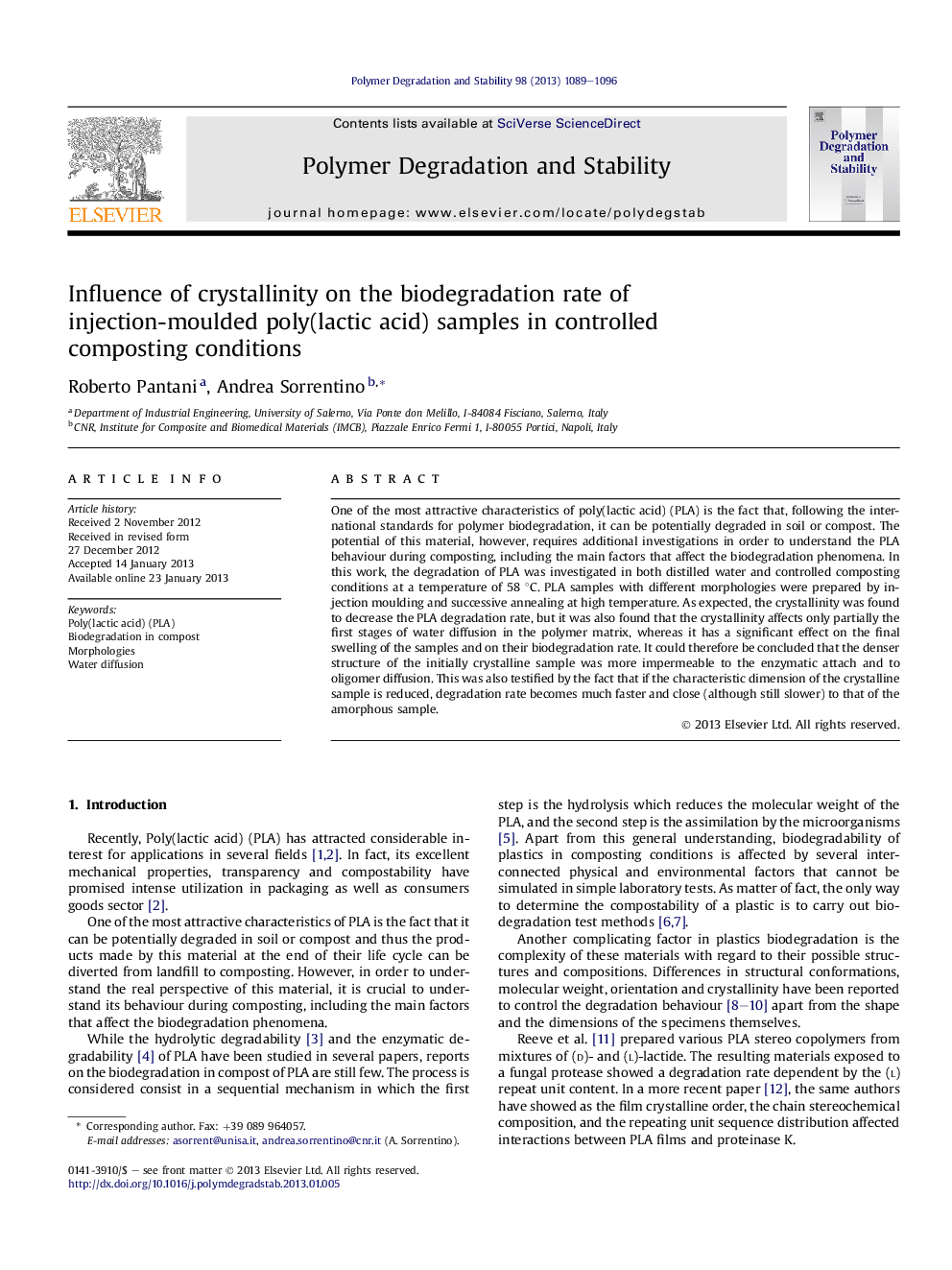| Article ID | Journal | Published Year | Pages | File Type |
|---|---|---|---|---|
| 5202355 | Polymer Degradation and Stability | 2013 | 8 Pages |
Abstract
One of the most attractive characteristics of poly(lactic acid) (PLA) is the fact that, following the international standards for polymer biodegradation, it can be potentially degraded in soil or compost. The potential of this material, however, requires additional investigations in order to understand the PLA behaviour during composting, including the main factors that affect the biodegradation phenomena. In this work, the degradation of PLA was investigated in both distilled water and controlled composting conditions at a temperature of 58 °C. PLA samples with different morphologies were prepared by injection moulding and successive annealing at high temperature. As expected, the crystallinity was found to decrease the PLA degradation rate, but it was also found that the crystallinity affects only partially the first stages of water diffusion in the polymer matrix, whereas it has a significant effect on the final swelling of the samples and on their biodegradation rate. It could therefore be concluded that the denser structure of the initially crystalline sample was more impermeable to the enzymatic attach and to oligomer diffusion. This was also testified by the fact that if the characteristic dimension of the crystalline sample is reduced, degradation rate becomes much faster and close (although still slower) to that of the amorphous sample.
Related Topics
Physical Sciences and Engineering
Chemistry
Organic Chemistry
Authors
Roberto Pantani, Andrea Sorrentino,
